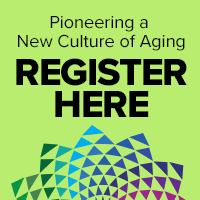
Ombudsman / Surveyor Session
Part 1: Is Your Resident Perspective 20/20? Enhancing Your Resident Vision / Envisioning the Future-Resident Directed Programming and Practice
Guides:
Kimberly Shetler, Ombudsman Specialist, Pennsylvania Ombudsman Office
Carolyn Tenaglia, Ombudsman Specialist, Pennsylvania Ombudsman Office
Description: if you can save a spot for this, I will fill in the info
Bios:
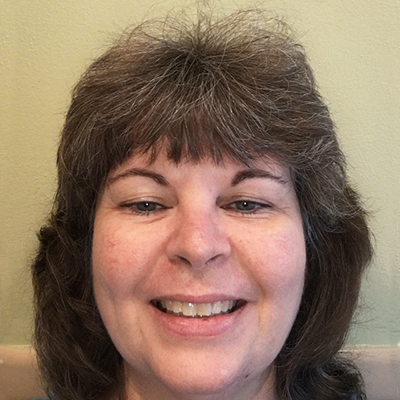
Kim Shetler
Kimberly Shetler has been an ombudsman for over 25 years. First trained and providing services to residents at the local level, for the last 18 years Ms. Shetler has served as an Ombudsman Specialist with the Pennsylvania Office of the Ombudsman. She is a graduate of The Pennsylvania State University (WE ARE) with a degree in Adult Development and Aging. Ms. Shetler has developed training and curriculum for ombudsmen, volunteers, facility staff, and professional organizations. Ms. Shetler has been involved in the Pennsylvania’s Empowered Expert Resident’s Program since its inception in the State and has been a staunch advocate for culture change and resident focused care throughout her career. She loves to knit and assist with the Cats in Bloom Cat Café rescue organization in her free time
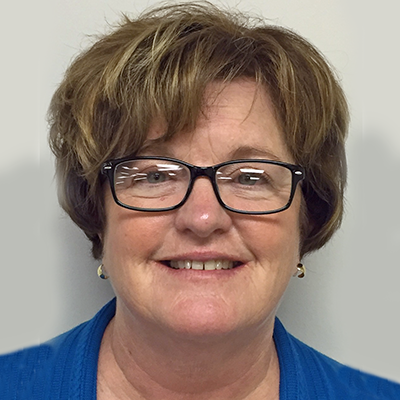
Carolyn Tenaglia
Carolyn Tenaglia has been employed as a nursing home social worker, a local ombudsman and a regional ombudsman representing the PA Long-Term Care ombudsman. Over the past 14 years as a regional, Ms. Tenaglia has been responsible for training other ombudsmen, developing curricula, facilitating statewide PEER resources and coordinating the annual resident rights observance for use in PA. She is on the board of directors for VOICE, the statewide culture change coalition in PA. In that capacity, she has the opportunity to serve as a liaison between the PEER and ombudsman network in PA and the statewide coalition. Both Ms. Tenaglia, along with Ms. Shetler, coordinate the statewide PEER Conference calls which allow for direct consumer dialogue. Through her work with the State Ombudsman Office, Ms. Tenaglia has become aware of issues and concerns that are a priority for the consumers and enjoys amplifying their voice in both local and systems advocacy activities.
Part 2: Outcomes from a Learning Collaborative to Protect Residents from “Facility-Initiated” Discharges
Guides:
Lori Smetanka, Executive Director, The National Consumer Voice for Quality Long-Term Care
Margaret Barajas, Pennsylvania State Long-Term Care Ombudsman, Office of Advocacy and Reform, Commonwealth of PA
Description: Hear about a learning collaborative focused on the most common complaint received by Long-Term Care Ombudsman Programs: nursing facility-initiated discharges. Despite regulatory protections against inappropriate facility-initiated discharge, they still occur, and Ombudsman programs have shared their need to have more advocacy tools, education, and collaboration to address this issue. This session will explore how 7 states are transforming their advocacy efforts through this collaborative.
Objectives:
- Discuss why complaints regarding facility-initiated discharges from nursing homes continues to be the number one complaint LTC Ombudsman programs receive.
- Replicate best practices to prevent facility-initiated discharges.
- Describe the role of the Ombudsman program in assisting residents to have a higher quality of life and care.
Bios:
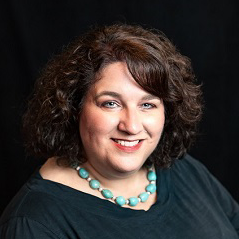
Lori Smentanka
Lori Smetanka is Executive Director of The National Consumer Voice for Quality Long-Term Care (CV). CV has over 40 years of experience educating and empowering consumers regarding issues in long-term care communities and promoting best practices for quality care delivery. During my tenure as Executive Director and Director of the National Long-Term Care Ombudsman Resource Center, I have worked directly with Long-Term Care Ombudsmen, providers, staff, consumers and families to promote best practices in long- term care services and supports. Our annual conferences highlight the benefits of person-directed care and we collaborate with the Pioneer Network whenever possible.
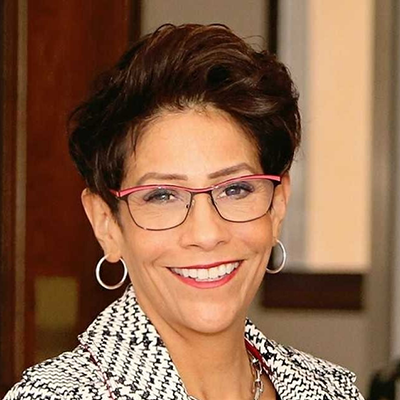
Margaret Barajas
Margaret Barajas brings over 25 years of experience in program development, constituent advocacy, diversity/inclusion, and aging services to her position with the Commonwealth of Pennsylvania, where she has served since 2015. Across the nation, staff, and thousands of volunteers, are designated by State Ombudsmen as representatives to directly help residents, family members, and others understand residents’ rights and support residents in exercising their rights guaranteed by law.
From Spain to Pittsburgh: Meet the Team from Humanitude and Learn About New Innovations in Dementia Care
Guides:
Franck De Vivie, Director of Institute Gineste-Marescotti International
João Pärtel Araújo, BSc, MSc, MBA / Humanitude Trainer
Description: The aging demographics impose changes in society, in general, and in the healthcare system, in particular. Along with these demographics, there is the increasing prevalence of chronic diseases, among them Dementia. For caregivers, family and the person itself, dementia can be difficult to understand and cope with throughout its progression. The main challenge identified in research is the management of behavioral and psychological symptoms of dementia. Even when there is a recommendation for non-pharmacological approaches, the majority of times medication is the only intervention that caregivers find available. Humanitude is a multimodal methodology of care that professionalizes the relationship established between the resident and the caregiver. This non-pharmacological approach has been developed for 40 years, and its living authors, Yves Gineste and Rosette Marescotti, concluded that any care intervention without relational consent can become harmful, resulting in defensive behaviors leading to a reduction in quality of life and life expectancy of people living with dementia. With 150 techniques that are scientifically validated and can be incorporated into care practice through training, Humanitude reveals an efficacy difficult to match with up to 95% reduction of BPSD’s prevalence. Its results have made it a very prominent methodology of care in countries such as France, Japan and the U.S.
Bios:
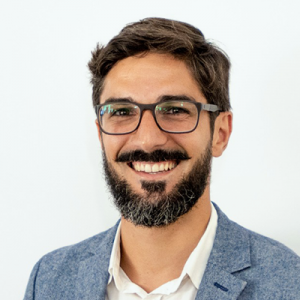
João Pärtel Araújo
João Pärtel Araújo’s mission is to bring joy into caregiving, regardless of setting and role, believing that life and happiness belong in healthcare. In 2006, his grandfather was diagnosed with vascular dementia, and that made him to dedicate his life to geriatric and frail people care, searching for best caregiving practices to promote welfare and quality of life. João began as a caregiver, a nurse, a clinician, later becoming a healthcare director, and is now working as a trainer and a consultant.
Traveling worldwide to train, empower and inspire healthcare professionals, families, and people with chronic health conditions, he is actively working to change the lives of hundreds of people with a relational approach to care. He has worked with Humanitude since 2010, the methodology of care developed by Yves Gineste and Rosette Marescotti, that he personally learned from them, achieving the certification of Humanitude instructor in 2016. He is currently the International Pedagogical Coordinator for Humanitude implementing this evidence-based methodology of care in Europe, Asia and America.
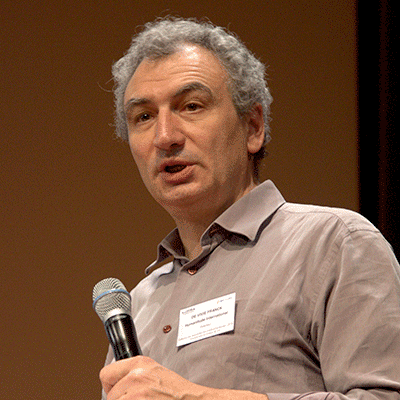
Franck De Vivie
Franck De Vivie has a Masters degree in Management (1989 GEM – Grenoble Ecole de Management). He worked for 20 years for a European food packaging group from 1992 till 2012 developing management skills at an international level. In 2007, he was appointed VP Sales for the group. It was through his wife, Annie de VIVIE, that he became involved with Humanitude. Annie has been in charge of the Humanitude network in France since 2004, and through her, Franck he had the opportunity to meet Rosette Marescotti and Yves Gineste on several occasions. In 2013, they offered him the opportunity to join the Humanitude network and bring his experience to develop it internationally. Humanitude values before all network is growing thanks to encounters with people sharing the same values in countries like Belgium, Italy, Spain, Japan, Korea, Singapore and USA.
Preferences for Everyday Living Inventory (PELI) Bootcamp: The Foundation for Implementing Preference Based, Person-centered Care in Provider Communities
Guides:
Karen Eshraghi, Quality Improvement Project Coordinator, Abramson Center for Jewish Life
Victoria Crumbie, Director of Activities, Abramson Center for Jewish Life
Alex Heppner, Project Manager, Miami University
Description: In this interactive workshop, participants will learn how to implement preference-based, person-centered care using the Preferences for Everyday Living Inventory (PELI). The session will provide an introduction to the PELI preference assessment tool, and present evidence-based research supporting use of the PELI. Participants will learn how to conduct PELI interviews with residents/clients and engage with family members if needed. In addition, we will discuss ways to engage staff in the process. After receiving instruction, participants will break into pairs and practice using the interview tool.
Objectives:
- Discuss the background and development of the PELI, review PELI Items, and strategy for getting started.
- Provide instruction about how to conduct PELI interviews with residents.
- Provide instruction about how to conduct PELI interviews with residents and their family members and how to engage staff.
Bios:
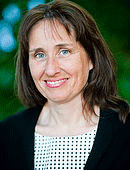
Karen Eshraghi
Karen Eshraghi, MSW, received her Bachelor’s in Social Work from Spalding University and her Master’s in Social Work from Temple University. In her three-year tenure as project manager for a NIH-study “Assessing the Preferences for Everyday Living in the Nursing home” (2011-2014, Ms. Eshragi developed expertise in the assessment, training, and measurement of important preferences of nursing home residents. She was a contributing author on multiple publications related to person-centered care and has provided numerous presentations on this topic.
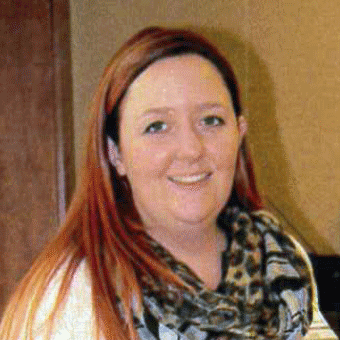
Victoria Crumbie
Victoria Crumbie (Tori) is the Director of Recreation for the Abramson Center for Jewish Life, North Wales, PA. She is responsible for the development of the Recreation Department to expand the scope of programming and incorporate therapeutic intent. She supervises the MATCH Tracker Quality Improvement initiative to enhance person-centered care. Tori develops the calendar of activities to include opportunities for residents to fulfill a vast array of preferences at any stage in life. In addition, she maintains the Recreation Department budget lines and provides supervision to the Program Assistants and collegiate interns to establish goals for future professional development. Finally, she plans, organizes, and implements organization-wide special events for residents, family, and staff.
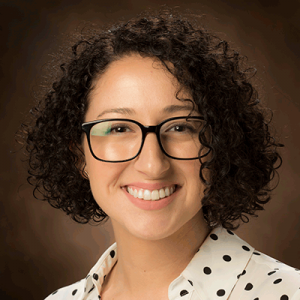
Alex Heppner
Alex Heppner, BSW, received her Bachelor’s in Social Work from Bradley University. Ms. Heppner has experience with care planning process in both long-term care and adult day program settings. She is currently the Project Manager for the PELI-Can Project tasked with assisting Ohio nursing home providers implementing the Preferences for Everyday Living Inventory (PELI). Alex communicates with nursing home providers to identify barriers and facilitators of PELI implementation and manages the project’s “helpline” to respond to provider inquiries. She also assists with the development of training videos and tip sheets to aid providers. Additionally, she manages the project’s social media accounts and electronic newsletter for dissemination of implementation tips, updates, and related information.
| Additional Special Opportunities |
Multi-Sensory Experience
Are you looking for a way to provide calming and stimulating interventions for persons living with dementia? Are you considering providing a multi-sensory space in your community, but you’re not sure what the design principles are or where to find the everyday objects, activities, lo-tech and sensory inputs to include in the space?
If the answer is yes, then you’ll want to experience and learn about the Multi-Sensory Stimulation Room hosted by Dr. Kathleen Weissberg, Education Director, Select Rehabilitation and located in the stop by to see the Exhibitor/Sponsor Gallery.
Dementia Live
Hosted by the team from AGE-u-cate® Training Institute, the Dementia Live experience immerses the participant into what life might be like living with cognitive impairment and sensory change. Utilizing specialized gear that simulates dementia specific changes that include altered eyesight, hearing and tactile sensation, this safe experience is a powerful and effective tool to strengthen care partner’s understanding of and empathy for their residents. Gaining a first-hand understanding of anxiety, isolation, frustration, confusion, and more, Dementia Live uniquely walks participants from the “AHA” moment to empowering caregivers with tools to improve communication, care processes, and the environment as they gain insight to help them as they get to know each person who is living with dementia.
The Experience takes approximately 30 minutes and will be open during Exhibitor/Sponsor Gallery hours. Attendees can reserve a time to participate in the Dementia Live experience by signing up at the AGE-u-cate® Training Institute table.
Certification Program
Compassionate Touch Certification
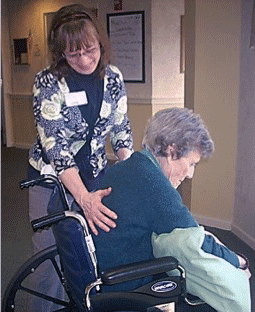
Compassionate Touch®
Compassionate Touch® is a powerful, skilled touch approach that evidence shows is an effective non-pharmacological strategy to reduce stress reactions in persons with dementia and end-of-life care. The gentle, hands-on techniques were developed with busy care partners in mind, giving them practical tools that are easy to learn and integrate into daily care practices, while strengthening relationships with those they serve.
The Compassionate Touch Coach Certification will visibly demonstrate one’s commitment to person-centered care and culture change.
This interactive training is engaging, enlightening and will allow participants to bring back an important credential and practice to share with their communities and families. Attendees will receive 5 CEs for completing the certification.
| Download Compassionate Touch® Certification details (pdf). |


